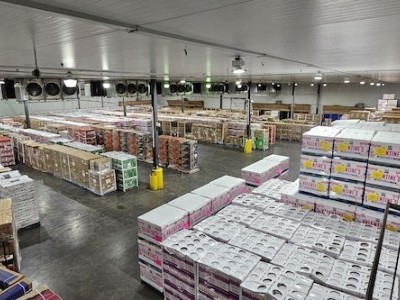Freight association believes extension of Brexit transition period still seems likely
Apr 22, 2020As the stalled negotiations between the UK and EU started again this week, the head of the British International Freight Association has described the UK government’s insistence that it will not ask to extend the 11-month transition period as a very risky move.
Robert Keen, the director general of the British International Freight Association (BIFA) said: “In light of the huge issues involved with a sharp change in trading conditions at the start of 2021, particularly if that were to coincide with another Covid-19 outbreak, we think an extension looks increasingly likely.
“Our understanding is that there has been very little progress to date on key negotiating points.
“There has been little meaningful consultation with UK trade regarding the policies and procedures required in order to ensure that trade with the EU can continue relatively uninterrupted post December 31st 2020.
“Trade deals are typically multi-year exercises, but in this case, the UK and EU realistically have until October to agree on terms, allowing time for ratification. And while formal talks are continuing, many of the civil service resources previously assigned to support negotiations have been reallocated to deal with the coronavirus emergency response.”
Keen argues that the transition period wasn’t just designed to facilitate negotiations, it was also there to give businesses time to prepare for the future relationship.
He adds that whether or not a free-trade agreement is concluded this year, there will still be major changes to the UK’s trading relationship at the start of 2021, such as new customs documentation and procedures.
“Even before the pandemic, there were concerns among BIFA members, which are responsible for managing the movement of a large proportion of the UK’s visible international trade, that the 11-month transition wouldn’t leave enough time to prepare for a potential no deal.
“Now, having had their businesses knocked sideways by the virus, many of our members have furloughed staff whilst they work out how they can keep their businesses afloat.
“It is unlikely that their companies and the clients they serve will have the capacity to increase readiness for a sharp change in trading conditions in 2021.
“In light of those things and with very little information from government on when restrictions on key sectors of the economy are likely to be lifted, and the as yet unknown economic damage done to the sector and wider economy, BIFA members are in no position to respond to a second massive shock if there is significant change in the terms of trade with the EU at the end of the year, because the government has stuck to its guns over the transition period.”
“We believe that refusing to even consider extending the transition period is very risky and together with a growing chorus of Brexit commentators, think an extension to the transition period remains likely, and it is really only a question of ‘when'.
“The crisis caused by Covid-19 is delivering much greater understanding of the key role of freight forwarders to the authorities and the wider audience that rely on the commodities being delivered through international supply chains. Now in these very difficult times, it is imperative that that the government acts responsibly and listens to the freight transport sector.”
Similar Stories

C.H. Robinson now accepting applications for annual carrier scholarship program
View Article
Beyond Disruption: Proactive steps to strengthen supply chain resilience
View ArticleShipBob’s 2025 State of Ecommerce Fulfillment Report provides insights into Merchants’ Global, Omnichannel Supply Chains
ShipBob, a leading global supply chain and fulfillment platform for SMB and Mid-Market e-commerce merchants, today released its fourth annual State of Ecommerce Fulfillment report. The report is based on…
View Article
Realterm expands European footprint in the Netherlands by acquiring a strategic final mile asset from M7 Real Estate
View Article
ITS Logistics partners with TAT to combat human trafficking through Silver-level sponsorship
View Article
Alterra IOS adds four industrial outdoor storage sites In Dallas-Fort Worth MSA
View ArticleGet the most up-to-date trending news!
SubscribeIndustry updates and weekly newsletter direct to your inbox!





